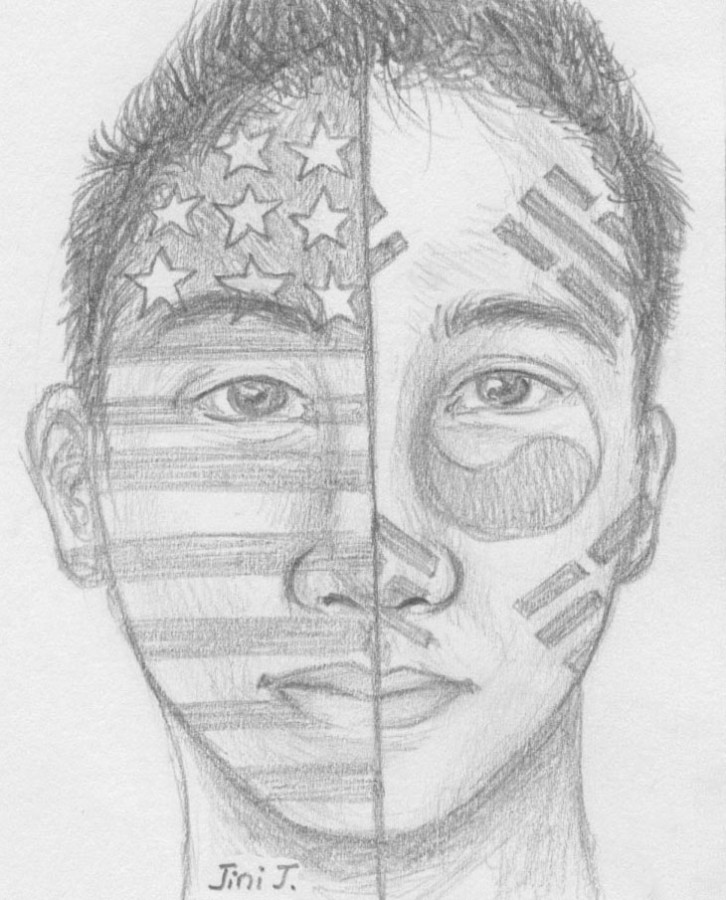Korean-American identity overcomes assimilation
October 2, 2015
“The Koreans are coming, the Koreans are coming!” my friend Jimmy exclaimed. In the summer of 2012, twenty-five native Korean students joined my church friends and me at a summer band camp. Though lackluster, my Korean speaking abilities were still superior to my fellow church members’ so I was immediately assigned the task of making introductions and translating on demand. Rather than enjoying 13 days of music and reconnecting with old friends, I was held responsible for babysitting a group of people whom I could hardly relate to, much less communicate with.
Then, during break time on the second day of camp, one Korean student named Min-Hyeok expressed a desire to hang out with me. We spent three hours talking and exchanging fascinating experiences. I was astounded to learn that Korean students typically devote 20 hours a day towards their academics, and Min-Hyeok was shocked to hear how American students fill their days with both extracurriculars and school work. I was stunned at how narrowly and traditionally most Koreans define physical beauty, and Min-Hyeok was struck by the physical diversity of Americans. I envied how Min-Hyeok had such easy access to all my favorite Korean delicacies at the street markets back home, and Min-Hyeok couldn’t wait to try a Chicago-style hotdog and Giordano’s deep dish pizza.
Besides its fascinating insights into comparative cultures, this conversation spurred something greater: it was the stark realization that I had abandoned my heritage while assimilating into American culture.
After immigrating to the United States, my parents were adamant in making sure my sisters and I didn’t become ignorant of our Korean culture. I vividly remember six gruesome years’ worth of Saturdays locked up in Korean school, forcibly watching Korean historical dramas and solely speaking in Korean at home. All while trying to fit in at an American public school during the week.
However, as my parents grew overwhelmed with work, their guided activities slowly disappeared. From then on, I cultivated a disdain towards my Korean heritage. At school, I joined activities, such as basketball, volleyball and debate, for there were far fewer number of Koreans who participated in these areas; I ignored the Asian-American students while solely conversing with my white peers.
Most regrettably, I encouraged the ridicule of Korean culture, most notably K-Pop (Korean pop music). I held great pride in being considered one of the only “Americanized” Koreans, even though it came at the cost of betraying my native culture.
The way I came to view my culture differently may seem rather insignificant, but befriending Min-Hyeok ultimately resulted in a journey of reimmersion into my Korean heritage.
I began by obsessing over popular Korean TV shows, such as Running Man and Reply 1997/94, stealing colloquial phrases to incorporate into my vocabulary. I also began using Korean with my boss, parents and predominantly Korean speaking students, all without the help of Google Translate (well, most of the time). I even wrote my A.P. United States History paper on the Korean War.
Even though my experiences may resonate more with the Korean population, my story of cultural neglect can’t be confined to just one group. These kinds of experiences can be had by anyone.
For so long I struggled internally with finding my identity. After 18 years of wavering back and forth between two cultures, I’ve now come to accept the notion that it is impossible for me to live a life without both my Korean and American backgrounds. I’ll continue eating at La Taquiza and Greek Feast, yet I’ll always crave my mother’s Kimbap and Kimchi-chigae. I’ll still rock out to Beyonce and Kelly Clarkson, but also to Kim Bum Soo and Song Yoo Bin.
Quite frankly, I’ll probably never fully understand the vernacular and mannerisms of my Korean culture. However, my cross-cultural background continues to mold me into a human being whose blended values and beliefs will play out in ways I can’t, right now at least, begin to fathom. I have faith that they will push me in enlightening and rewarding directions as I go forth into the world.



